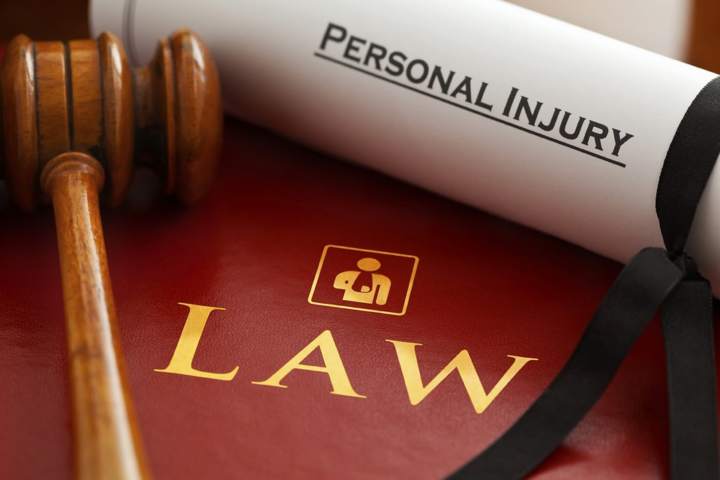6 Important Pieces of Evidence to Collect After an Injury Accident
When you are injured in an accident, there may be consequences that go beyond physical and emotional distress. Depending on the situation, it can also mean financial hardship due to medical bills and lost wages, as well as a lot of legal wrangling over liability and compensation.
To strengthen your case and make sure you receive justice for what happened to you, it’s important to collect evidence about the accident in order to support your side of things. Here’s the evidence you’ll need.

Expert Reports
Expert reports are an invaluable piece of evidence when it comes to these cases. The attorneys working at InjuryAlly.com indicate how credible experts such as police officers, doctors, and engineers can fortify your claim. The testimony and analysis of these witnesses can be incredibly valuable in establishing the facts and detailing the extent of any damages suffered.
Although obtaining such a report can be expensive, failing to do so could end up being far more costly – costing you time and money, as well as possibly hamstringing your case altogether. All that’s to say – if you find yourself in a personal injury case, make sure that you strongly consider investing in an expert report – its analysis might turn out to be an essential part of winning your case.
Photos And Videos
Photos and videos provide the context, timing, and visual detail needed to clearly explain what happened. Protecting these as evidence is important, as they can help prove who was at fault in a given situation. If a victim was injured due to someone else’s negligence or recklessness, these kinds of media could serve as powerful testimonials to back up a claim.
Even if the images themselves do not explicitly show how an accident happened, they can still be used to illustrate other important elements of the case such as layout, environmental issues, and more. Because they play such an important role in providing insight into the circumstances surrounding injuries and can make all the difference when it comes time to seek compensation for damages suffered.
Medical Records
Medical records give the court proof that an injury occurred and can demonstrate the severity of any resulting medical complications. It’s important to collect these from the time of the accident all the way through treatment. Here are some pieces you should have on you:
- emergency room records
- hospital admission records
- doctor’s notes
- diagnostics
- physical therapy records
- medication records
- receipts and invoices
- psychological evaluation
Additionally, it’s important to collect any related documents such as diagnostic imaging, laboratory results, and itemized billing statements. When combined with other evidence, such as witness statements or accident reconstruction reports, this information can help you make a much stronger case for your client.
Witness Statements
Witnesses can provide critical details that would otherwise be missing from the case and help to complete the story of what happened leading up to and after an accident. They often offer testimony about what they saw and heard, which can play a crucial role in a court of law or during settlement negotiations.
Additionally, the insights offered by neutral third parties – people who were not directly involved in the accident – may offer helpful perspectives that can contribute to a swift resolution of the accident claim. An experienced personal injury attorney can advise you on how to get the witness testimony you need to win your case. Having access to witness statements, as well as, if necessary, the knowledge of expert witnesses, is certainly something worth considering when filing a personal injury suit.
Insurance Information
In addition to the physical and visual evidence you collect, it’s also important to acquire various types of insurance information. Documentation such as home and auto insurance policies, medical and disability forms, as well as other types of coverage can all give valuable insight into a case.
Furthermore, presenting this information can prove who is at fault for an accident or incident as well as who is liable for damages incurred. It’s essential to collect this information soon after the incident in order to better understand what took place and provide sufficient documentation for a judge or arbitrator when deciding on a case.
Lost Wages
Lost wages can be a crucial piece of evidence in any personal injury case. After all, if an accident victim is unable to work due to their injuries, the suffering is not only physical – it can also have financial implications.
Lost wage evidence helps paint a picture of the full scope of damages incurred due to an injury, and when gathered skillfully it can be invaluable in obtaining restitution from those legally responsible. As such, if you are filing a personal injury claim, be sure not to overlook this important evidence which will help to secure the recovery that you need for your hardships moving forward.
The evidence collected for a personal injury case can make or break its success. From expert reports and photos/videos to medical records, witness statements, insurance information, and lost wages, there are a variety of pieces of evidence that should be obtained when building a personal injury case.
Proving that the other party is liable may require thorough legal research and collection of evidence but can lead to compensation for medical costs and more. So don’t wait – collect this important evidence right away to ensure you have all your bases covered.


